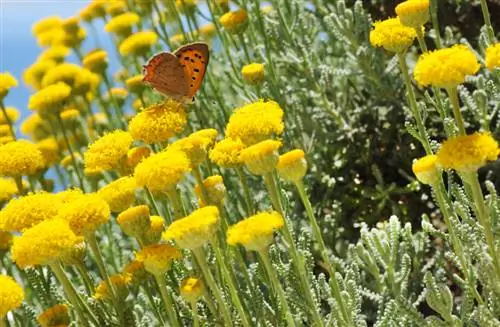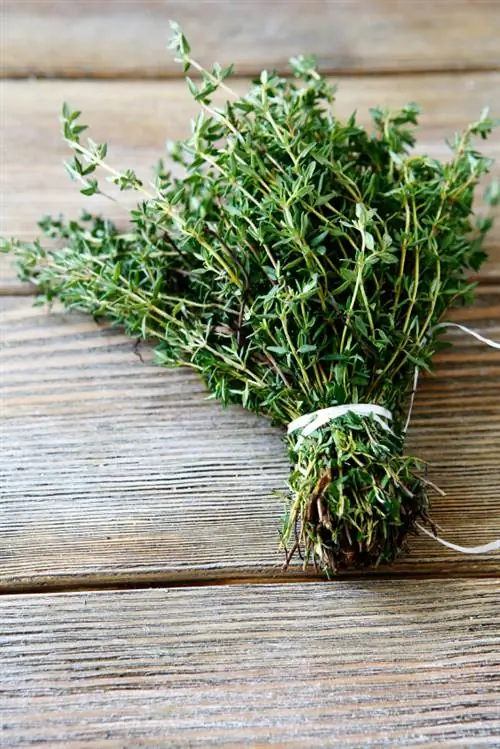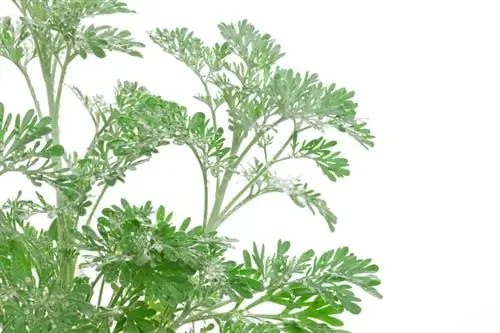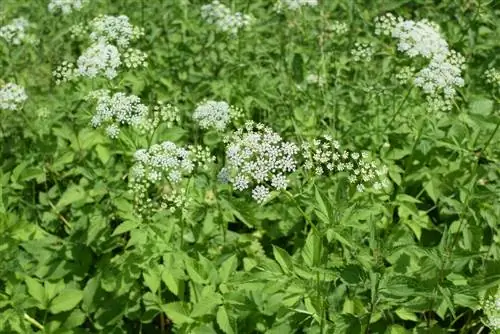- Author admin leonars@hobbygardeners.com.
- Public 2023-12-16 16:46.
- Last modified 2025-01-23 11:20.
Sacred herb comes from the Mediterranean region and has been known there as a medicinal herb since ancient times. In Central Europe, the perennial has only been used since the 17th century as a household remedy, as a seasoning in the kitchen and as a remedy in natural medicine.
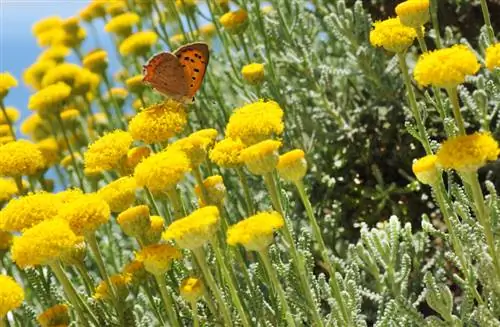
What healing effects does saint herb have?
The holy herb has a healing effect thanks to its ingredients such as essential oils, resins, tannins and bitter substances. It can be taken internally as a tea to help with indigestion and menstrual cramps and externally it can soothe irritated skin and treat mosquito bites. It also serves as a dewormer.
The ingredients of saint herb
Sacred herb contains a number of ingredients in its leaves, seeds and flowers that are used in natural medicine:
- essential oils
- Resins
- tannins
- Bitter substances
The proportion of ingredients in the upper sprouts and flowers is particularly high. It is therefore best to cut holy herb during the flowering period from June to August if you want to use it as a medicinal herb.
Can be used internally and externally
The herb can be used both internally and externally. The plant is not poisonous in any of its components.
Holy herb should only be used as a supportive measure for complaints. There is currently no scientific evidence of its effectiveness. If you have serious illnesses, you should definitely see a doctor.
Internal use as tea infusion
Leaves, flowers and seeds can be used to make holy herb tea. The ingredients are brewed either fresh or dried.
The tea has a stimulating effect due to the essential oils. Bitter substances and tannins promote digestion and relieve stomach cramps. Some naturopaths also recommend saint herb tea for menstrual problems. The effect is probably triggered by the tannins and bitter substances it contains.
The effect of external use of saint herb
Sacred herb is said to have a calming effect on irritated skin. To do this, fill the bathtub (€4.00 on Amazon) with water that is not too hot and add the ground leaves as a bath additive.
Treating mosquito and other insect bites
Essential oils and resins of saint herb have a healing effect on the bites of mosquitoes and other insects. It reduces itching and supports the skin in the regeneration of wounds.
To do this, fresh leaves are ground and made into a paste that is spread on the puncture or bite wound.
Saint herb seeds as a dewormer
The seeds of saint herb are used in naturopathy as a deworming agent. It is said to combat worms and other intestinal parasites.
Tip
The botanical name of saint herb is Santolina. It is made up of the Latin words sanctus=holy and linum=flax.

